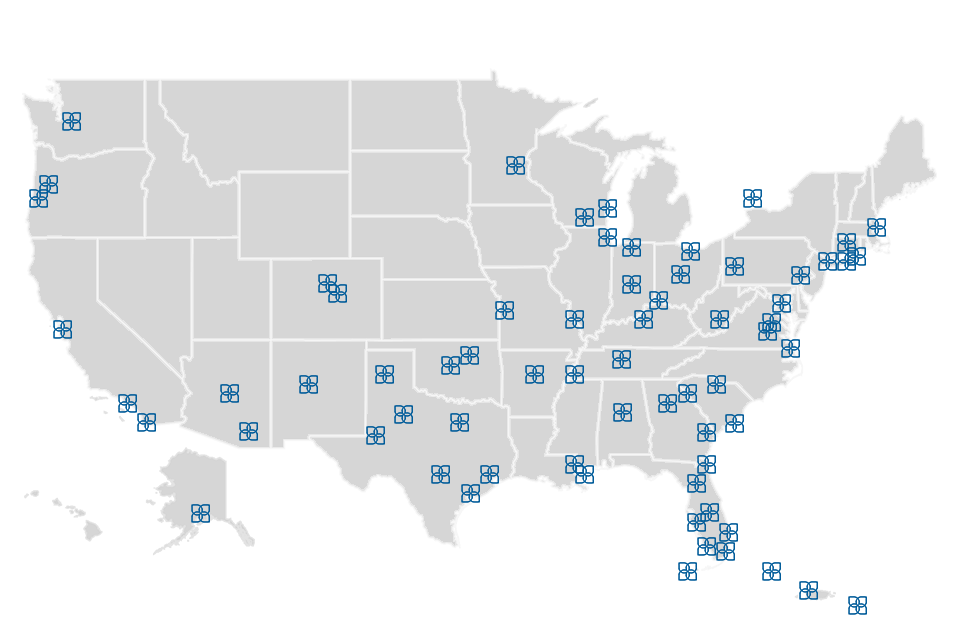
April 23, 2024, by Chris Plasencia, Managing Director
Download a PDF version of Hospitality Industry Insights – Managing General Managers
In the process of selling a hotel, the hotel’s general manager is an incredibly critical player. Often drafted into a sales process involuntarily, the GM can singlehandedly elevate or undermine the sale of his or her hotel, impacting its value meaningfully, either positively or negatively. Though we rarely encounter a GM who is initially enthusiastic about the sale of his or her hotel, the vast majority of the time, they are assets in our disposition process, thanks to their dedication to their hotels and ownership groups, their professionalism, and a little bit of coaching in advance. Prior to the sale of any hotel we sell, we discuss the following matters with the GM so that they are equipped to maximize their impact on value.
Enhance the Hotel’s Physical Condition
First impressions set the tone, and negative ones are hard to overcome. We recommend undertaking several steps to portray a hotel in its most favorable light. First, before launching a sale, the GM should evaluate whether any low- to no-cost initiatives can be undertaken to improve the hotel’s physical condition. For instance, is there any carpeting in need of cleaning? Could landscaping be touched up? Are there areas in the back of house that can be decluttered and reorganized (especially boiler and chiller rooms, as well as the engineer’s shop)? Is the property’s preventative maintenance program current, or are there aspects that have been neglected? A little work in advance goes a long way. On the other hand, a sloppy back of house or a greasy kitchen floor can taint a buyer’s impression irreparably. Similarly, if major mechanical items or a roof are not kept up, a buyer will wonder what else might not be in working order.
This is not to say that all properties will show as if they are in pristine condition. Today, more than ever, hotels are starved for capital. Still, even hotels that are long overdue for a PIP can be sufficiently spruced up with a little foresight, which reflects well on the GM as well.
Once a hotel is put into its best possible condition pre-sale, that strong condition should be maintained during the sale process. The GM should walk the hotel, especially the predetermined path of the property tour, prior to any site visit. Equally as important, showrooms should be inspected prior to any tour, and ideally, lights should be turned on, and window treatments opened so that a touring prospect isn’t walking into a dark, depressing guestroom. Nothing shows a lack of attention to detail more than a glaring issue that could have been caught in advance.
Finally, the GM will inevitably be asked on a tour where the hotel needs capital. General managers should be prepared to answer honestly, but if possible, in a positive manner. For example, if new soft goods are the most pressing need at the hotel, a GM could share that with new soft goods, and the hotel should drastically improve its share within its competitive set. This will give investors confidence their capital will be well spent.
Scrutinize the P&L
A property’s fiscal condition is just as important as its physical condition. A hotel’s Net Operating Income is king when it comes to determining its value, and everything should be done to preserve and ultimately maximize this key financial metric. The midst of a sales process is not the time to massively shift revenue strategy or layer on new expenses. All general managers are aware of the importance of cash flow in the normal course, but the point should be emphasized as a hotel is prepared for sale.
Any below-the-line owner’s expenses or otherwise extraordinary items that hit the P&L should be noted, explained, and, if appropriate, removed. If the hotel has allocated capital items to the P&L, they should be pulled out. The goal is to create as clean and normalized a P&L—replete with the industry standard 3% management fee and 4% reserve—as possible.
It’s inevitable on tours that GM’s will be asked financial questions, and we have three suggestions: (i) always answer honestly; (ii) it’s always acceptable to track down an answer to a question after the tour, rather than guessing at an answer; and (iii) never hesitate to protect proprietary information (e.g., top accounts, negotiated rates, etc.). It’s not to say that a GM shouldn’t do his or her homework in advance of a site visit, but there is no expectation that a GM will be able to address each and every esoteric financial question asked on a tour.
Shine on the Site Visits
A GM’s impact is felt most directly on site visits, where he or she typically leads the tour. While the focus is on the hotel, it’s also an opportunity for the GM to sell himself or herself and his or her management company. It’s an interview.
A tour is a prime opportunity for a GM to share property-level expertise, leadership, and vision. If a GM has bold ideas about where the hotel is headed, the tour is the time to share. Two inevitable questions will assuredly come up: (i) If you have a blank check to deploy at the property, where would you spend it? and (ii) What are the biggest causes of guest complaints? The GM should be prepared with creative answers to both.
A site visit is also the time for a GM to be confident with his or her body of work. The homework’s been done: the physical condition has been scrutinized, and the P&L has been optimized. A GM shouldn’t be afraid to brag about how the hotel is performing. If the subject hotel is running a 115% RPI, don’t hesitate to share that information. If management is producing stellar GSA scores, let the prospect know!
As it relates to interactions with the rest of the property’s staff, while we do our best to minimize them while onsite, after several tours, it can become pretty obvious to the property team that something is going on. Hotel owners and GMs have their own strategies about how to best navigate this, but our strong preference is to be transparent: prior to launching a sale, we prefer that the subject hotel’s executive team be fully apprised, so that they are not beset by uncertainty while we are onsite, and more importantly, so that they bring their A-game throughout the process. We often see financial incentives offered to certain key associates, the GM included, to encourage them to stay onboard across a disposition process.
Are you considering a sale?
Most hotel general managers are consummate professionals who know their hotels inside and out better than anyone else. Harnessing and applying this proprietary knowledge positively is exceedingly beneficial and in the best interest of hotel and resort owners when engaging in a sales process. With transparency and a little guidance, GMs can apply their intimate knowledge of the property and become true catalysts for driving value in the sales process.
Whether you’re ready now or just beginning to prepare your property for a disposition, The Plasencia Group is here to assist you in maximizing your asset’s value. Let our highly skilled team put its decades of invaluable experience to work for your hotel or suite of hospitality assets. We invite you to get in touch with one of our Investment Sales or Owner Representation team members today to discuss how we can help you achieve your investment objectives.
Over Thirty Years of Client Success
Our advisory team has engaged in well over 500 engagements across the United States and the Caribbean over the last thirty-one years. It would be our pleasure to assist you in the evaluation, acquisition, sale, or financing of your hotel or resort properties.
In addition to our investment advisory practice, our firm also provides ownership representation services and development and renovation consulting expertise to hotel and resort owners. If we may be of assistance with any detail of your hotel, resort, or property portfolio investment, please call us directly at (813) 932-1234 to start the discussion.
For more valuable hospitality industry news and market analysis from The Plasencia Group, be sure to opt in to our news and communications list.


